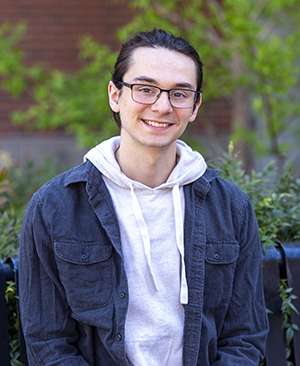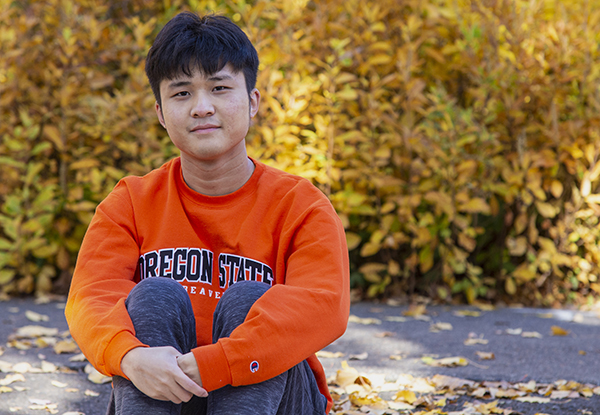 Victor Agostinelli, a doctoral student in electrical and computer engineering at Oregon State University, has been selected for the Pacific Northwest National Laboratory – Oregon State University Distinguished Graduate Research Program.
Victor Agostinelli, a doctoral student in electrical and computer engineering at Oregon State University, has been selected for the Pacific Northwest National Laboratory – Oregon State University Distinguished Graduate Research Program.
The goal of the program is to “strengthen and grow research collaborations and develop a select cohort of doctoral students in science, technology, engineering, and mathematics (STEM) fields.” Only 20 students whose research aligns with the U.S. Department of Energy’s mission are chosen for the program each year.
Agostinelli, who is advised by Lizhong Chen, an associate professor of electrical and computer engineering in the College of Engineering, works on research to optimize and automate the placement of machine learning accelerators on integrated circuits. Agostinelli’s research specifically focuses on optimizing the selection of dataflows.
“The multi-year funding allows Victor to pursue his passion in exploring the application of machine learning in computer architecture,” said Chen. “I look forward to the collaborative research that will strengthen the relationship between OSU and PNNL.”
Through the program, Agostinelli will be appointed to an assistantship at Oregon State University for two years and will then continue his research on a fellowship at PNNL for the next two years. There, he will work with a PNNL mentor while continuing to be advised by Chen.
Agostinelli, a native of Portland, Ore., earned a B.S. in electrical and computer engineering at Oregon State University, where he participated in research on robotic swarms in Professor Julie A. Adams’ Human-Machine Teaming Lab.
“Truly, the chance to collaborate with researchers at PNNL is priceless,” Agostinelli said. “I am incredibly excited to explore the bleeding edge of accelerator design and design optimization and automation.”


